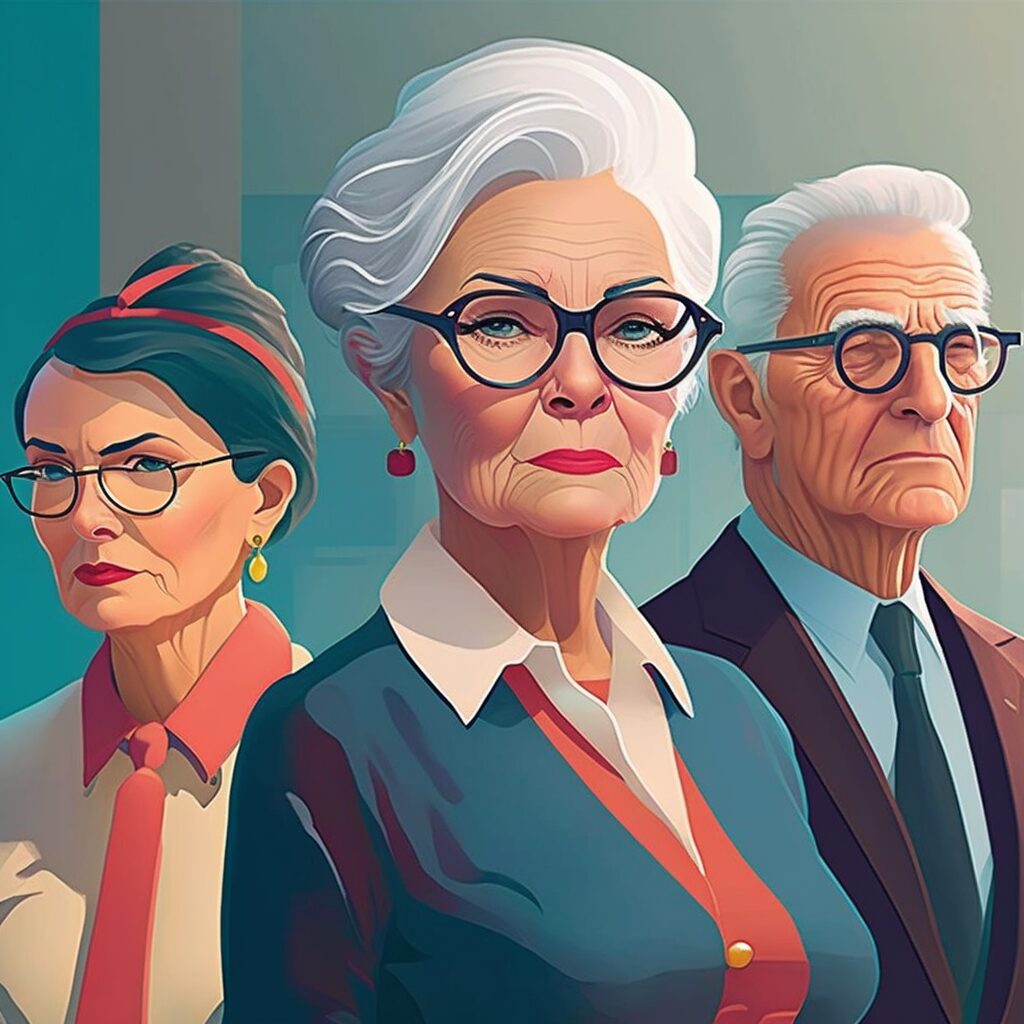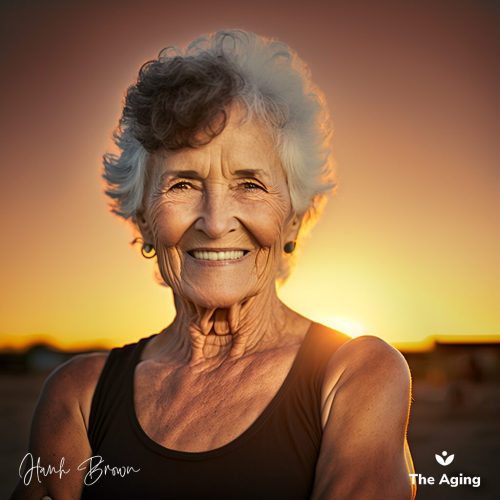Judy:
0:00
Well, we're kind of becoming more aware in medicine, healthcare and society, that people aren't just physical beings that we have relationships with people we live in relationship.Our thoughts are very important.Um, just becoming more aware of, you know, that we have choices, what we think, or our thoughts can drive the way that we feel about things.And, you know, many people feel that we're also spiritual beings and that physical illness is a spiritual journey as much as a physical journey.And so again, palliative care taking is Ideally provided by a team that is includes a doctor, a nurse, a social worker, and a chaplain plus other members of the team to look at the individual from all those angles because sometimes pain is physical pain.Sometimes it's emotional pain,sometimes it's existential pain.
Hanh:
1:37
Today, Judy Thomas is my guest.She is the CEO of Coalition for Compassionate Care of California, a statewide collaboration of healthcare providers, consumers, and policy makers, working to improve care for people of all ages in the face of serious illness.So, I'm excited to talk to her about staying in control of health care and palliative care options.So, Judy, welcome to the podcast and thank you for being with me today on Boomer Living.
Judy:
2:05
Thank you, Hanh.I'm really excited to be here.I really enjoy your podcast.You have such interesting speakers.It's just a pleasure to listen.
Hanh:
2:13
Thank you.All right.So, what are some things an average person can do to stay in control of their healthcare during the pandemic?
Judy:
2:23
Well, there's two of them really important things that I would recommend.And one is, COVID has made us all aware that any of us could be having a medical emergency at any moment.And that's always the case, regardless of COVID, we could be in car accidents or other things that happen.So, to prepare for that, we encourage people to complete an advanced directive.So, that's a document that names who you want to speak for you, if you can't speak for yourself.And it's really important for the medical team to know if they can't talk to you when you're not responsive, who do you want them talking to?And who do you want advocating for your care that you want.
Hanh:
3:03
Now who could consider completing an advanced directive?
Judy:
3:07
Anybody who's 18 years or older.So, we really recommend that on the 18th birthday that people think about, who they want to represent them to speak for them.And to put that in a document in the advanced directive.And it's sometimes it's called a living will or a durable power of attorney for healthcare.In my state, we call it advanced directive.So, it's naming who you want to speak for you.If you have goals, values, or preferences or anything to guide that person in making the decisions can also go in that document.
Hanh:
3:37
So, you say In your state,it's called an advanced directive.What state is that?
Judy:
3:42
California.In most States, they recognize the term advanced directive.That's the most generic term, but in the laws, sometimes they have different names.In the old days, they were called living wills.That's really not a term used so much right now.
Hanh:
3:55
Now, what are the benefits of completing an advanced directive?
Judy:
4:00
The advanced directive gives you peace of mind and your family and your loved ones,those who matter to you, peace of mind.Because when an emergency happens,you don't know exactly what kinds of medical decisions will need to be made.So, it's very important for the team to know who to speak to.And it's helpful to your family, to any guidance you can provide them helps to provide them with peace of mind in a very stressful situation.
Hanh:
4:27
Now what things should one keep in mind when filling one out?
Judy:
4:32
Well, first, as far as naming who you want to speak for you, you want to choose somebody who, one will honor your wishes because keep in mind if they're close to you and you are having a medical emergency,they're going to have their own experiences and it's going to be stressful for them.So, not everybody is able to put aside their feelings and their beliefs to really stand in your shoes and make the decision that you would make.You want somebody who is also able to talk to a medical team and process medical information.And to sometimes they need to stand up to the medical team and advocate for what you want.
Hanh:
5:08
Very true.And it's good to have all this in writing.When you don't need it, so that it puts your family members and yourself at ease because you're prepared.And now you have someone speaking for you for your best interests.Now, can you walk us through POLST,P O L S T what does it stand for?What does it mean?And the importance of it?
Judy:
5:30
POLST is a medical order that crosses across the entire healthcare continuum.So, it's not just within one setting, but it goes from setting to setting with the individual and it really is focused on taking your wishes.It's designed for people who already have a serious illness.And we wouldn't be surprised if they were going to die in the next year that if they went to the hospital today, what would they want in the context of that medical condition?POLST does Stanford physician orders for life sustaining treatment?It does go by different names in different States.Also this one could be POLST or MOST or COLST or MOST or PPOP.Anyways, it's basically, it's a portable medical order, that's valid in all settings.And if you don't have that, so, this is really helpful for people who, again, you don't have an advanced medical condition and they aren't wanting just whatever they expect, the healthcare system to provide.It's important for people who are living in their homes and where emergency responders might be called, because emergency responders, they're not going to open up the advanced directive.They're not, they don't have the time.And I don't have the training to look through the advanced directive, figure out what it says.But they do have authority to follow a medical order.And so, that's what POLST is the medical order,the responders, emergency responders know what the form looks like, and they know, exactly in a split second, looking at it, whether to attempt a resuscitation or what other procedures to start.
Hanh:
7:08
So, now for those of us that are not familiar with it, would you give a quick overview what palliative care and preparation, what we need to do for that?
Judy:
7:18
Yeah.Palliative care is a medical specialty that focuses on treating the pain symptoms and stress of a serious illness.It's provided alongside curative or rehabilitative care.So, palliative care started because our healthcare system is great at addressing the underlying medical condition and treating disease, but it's not so good at helping you live your life.It's not so good at making sure that some of the symptoms or the side effects are managed and that you know what to expect.And, when it comes to serious illness sometimes, the most let's see, the course that medical care often they're treating the.They're taking the next step.But they're not always looking at what's the likely course of this.Yeah, we can have surgery, you can do surgery.The surgery can be successful from the surgeon's perspective.And yet you are, maybe aren't going to get home.You aren't going to get back and walking and you're going to pass away likely in six months.So, that's where palliative care comes in to help look at the natural progression of the illness and make sure that you're aware of how that progression what this procedure being presented, fits into that natural course and what your goals are because sometimes, with illness, it gets to the point where less is more.Maybe less medical care actually helps you to stay in your home, to stay in contact with your family, to live your life.And we're not fighting against the natural process of dying.
Hanh:
8:55
Tough decisions, tough to prepare.And it's not something that people like to talk about.
Judy:
9:02
Yeah.And a lot of it, like you said, prepare, none of us know how we're going to, how our life is going to play out, but the more we become educated on the way that diseases do progress,then it's not so much the pressure in the moment.Because it's a time that's full of emotions and spiritual questions and existential questions.So, the more, you know, kind of to anticipate physically and what the terrain looks like,and the more support you have, the more you can really focus on those other aspects.
Hanh:
9:35
Yeah, it's always good to have these kinds of conversations with your children,your loved ones, the sooner, the better, right?Because like you said, a lot of this topics that we're talking about you don't want to face it.You don't want to, talk about it with your kid,but I think the sooner that you do, you're likely to have more options to choose from, but if you,let's say not talk and not prepare for it,lord and behold, when you have to make these decisions, it's likely to be in a crisis.So, I'm somewhere in between in my personal journey.We didn't talk about it.We weren't prepared, but thank goodness, as time progressed, we realized that we had to do differently with, my other parent and my in-laws because we'd gone through it with my dad.Yeah.I think awareness, education, making informed decisions it's best off and you could have more options, right?
Judy:
10:29
That is definitely true.It's always too soon until it's too late.It always feels too soon, And then the, but the option is it's in the crisis, like you said.
Hanh:
10:38
Yeah.Yeah.Now, what is so important about looking at patient holistically?
Judy:
10:44
Well, we're kind of becoming more aware in medicine, healthcare and society, that people aren't just physical beings that we have relationships with people we live in relationship.Our thoughts are very important.Just becoming more aware of, you know, that we have choices, what we think, or our thoughts can drive the way that we feel about things.And, you know, many people feel that we're also spiritual beings and that physical illness is a spiritual journey as much as a physical journey.And so, again, palliative care taking is ideally provided by a team that is includes a doctor, a nurse, a social worker, and a chaplain plus other members of the team to look at the individual from all those angles because sometimes pain is physical pain.Sometimes it's emotional pain,sometimes it's existential pain.And it's good to have these people who are trained in different disciplines to help support the individual, With whatever it is that individual is experiencing.
Hanh:
11:50
Very true.Now, how does palliative care also involve the patient's caregiver?
Judy:
11:57
Yeah.That's a great question.Palliative care is focused on the individual,the patient, as well as those people who matter in that individual's life because it, isn't just the individual that's having that experience.It's not just the individual that's impacted by that medical situation.It's really the people who are important to them in their lives.And again, most of us, we spend most of our time, not in healthcare.We live in our homes.We live our lives and you'll always have your serious illness.It's with you.It's pretty all encompassing.And so, it's really most people who are seriously ill have family members or other people in their life that are helping to support them in their healthcare.And so, it's very helpful for the caregivers.We need them as extensions of the medical team that they have, the support they need to not be drained by all of this.That they have the support they need to know.If there's whatever medical assistance the individual needs, that the caregivers trained in how to do that, it feels competent in that.
Hanh:
13:04
Very true.Now, where is palliative care provided?And is it usually in a hospital setting?
Judy:
13:10
Palliative care can be provided anywhere.And that is our goal, as well as being a medical specialty.Palliative care is a movement.And so, the movement is really helping to push the growth and expansion of palliative care.At this point in time, it's usually it's available most hospitals.The vast majority of them do provide palliative care.If you want to receive palliative care, you ask for that.There's a team in the hospital that will come and consult with the rest of them,with the patient and the caregivers, as well as the rest of the medical team.Home-based palliative care, which is where most people would like to receive pallets of carers in their home is still really in its infancy.And we don't have really strong reimbursement models for home-based palliative care.So again, you can ask your primary care doctor, ask your medical team,if you would like palliative care, if you think you would benefit from it.And then they will try to match you up with what the resources that are actually available in your community.Some PR, some physicians provide palliative care in a clinic, you might have it.Particularly if you have like our an oncology clinic at an academic medical center.Sometimes they have doctors that will come in.The palliative care doctor will come in and do a palliative care treatment or consult when you're there to see your oncologist.
Hanh:
14:35
Now, can you just give a distinction between palliative care and hospice?
Judy:
14:41
Yeah, that's a great question.The two are often confused, and I would say hospice is eight type of palliative care.So, when we refer to palliative care,we're really talking about the big scope of treating serious illness holistically and addressing the pain symptoms and stress.And again, it can be provided in a number of different settings when somebody has a serious illness that progresses to the point that the likely, the normal course of that disease is that they will pass away in six months,then they become eligible for hospice.And it is helpful to transition to hospice, even if you're on palliative care to transition to hospice, because hospice is a more intensive model.And is really focused on supporting that person who is in that late stage that we know there's really not so much curative measures that are going to be beneficial.There's really that shift to fully comfort focused to treatment.And hospice is usually provided in the home.So, it's again, it's really well staffed and reimbursed to help support that person in their home.
Hanh:
15:52
Now, how far in advance should people begin planning and thinking through their care options?
Judy:
15:58
I think with a palliative care, it's more about getting, becoming knowledgeable about what palliative care is and being prepared to, if you think that you would benefit to ask for it and to advocate for yourself.As far as with advanced care planning anticipating what would be important to you?It's more about not so much about the treatment procedures because you don't really know what's going to happen, if you're in a sudden accident.So, for most of us, it would be more about, what would help you live?What is important to you?For example, with me, what is most important to me is to be able to have meaningful communication with the people that I love.Now, if I'm not able to have meaningful communication, then it might be time for my decision maker to talk to the medical team.Am I going to be able to get better?Am I going to be able to get back to the point where I can have meaningful communication?Or, if that's really, we're just prolonging the dying process and I'm never going to get to the point where I can have that communication, then I'm comfortable with my loved one saying let's stop treatment and allow the natural dying process to take place.For some people you have to guess what it is that they want.Let's just say it like my mom, as an example,she's 99 and she's was living independently.She did decline probably through social isolation and I've observed her.I know what her values are.She loves to be independent and she has a strong will to live and she can come back from, she will do the work often to get back from a medical condition or a trauma.She doesn't have this chronic condition, but she does fall.So, I know these things about her.I know who she is.I know how she likes to live her life.I know what her values are.And so, my sisters and I are in the place of okay,this is what's going on with her medically, this is what's going on with her living situation.What do we think is the right decision that would help her live her life.And we've just moved her into an assisted living facility where she has a lot of independence, but she's not in her home because we really felt like that was, the right thing for her at this time.But you're always guessing you really don't know what is going to happen.You just do your best and you really want the learning advanced and the preparation is to help reduce that regret afterwards.Because we all have, when somebody is close to us and they have a medical condition or they pass away, we have a lot of grief, a lot of bereavement,and that's the natural process, right?If we didn't have that, what are we saying?That person was not important because that importance of that person is important to us, we're going to have that experience.
Hanh:
18:35
Yeah.So, part of not having the regrets or just, the guilt it's the preparation.And I know people, when you say preparation, how can you prepare for this?Let's face it, we come in the same way and we're gonna leave the same way.So along the way, if you're in a later stage, it's good just to have that open forthright conversation, knowing what your parents and grandparents wishes are.That's what I mean by preparation,and who are all the key stakeholders?Who do they want to be a part of that team or that group that will be there for your loved one in who has the power of attorney?There's a whole list of things.And I think often they're all scattered.
Judy:
19:17
That is true.That is true.And sometimes maybe it might be easier for a person to think about their Memorial, like how they want to be honored after they pass away.So, that might be another way into some of this topic and some of this thinking.Sometimes, when you're thinking about who you want to talk to the medical team, for people who have,maybe multiple kids, and you're trying to choose who you want to speak to the medical team.You could think about, maybe assigning jobs to other family members.So, you might have one that is the one that's going to keep everybody apprised as to how what's happening with your condition.And there might be another one that is coordinating food for you or another one that's going to coordinate the care in the home, because,as you know, Hanh, as people age and deal with serious illness and their, just get older,there's a lot of help generally that people need.And so, there's a lot of roles to be filled.
Hanh:
20:13
Yeah.And I also see due to the culture and the workforce, the dynamics of family, they're farther apart, right?They're farther apart.And we try to be close to mom,dads, and her grandparents.But I think often we're farther apart and I think it's so important to have those conversations.And here's the thing is one of the children willing to, be that caregiver?Or move your loved one and to a community.Tough decisions.Very tough.There's all these moving components.I appreciate this conversation.So, I think it just brings out more underscores the importance of planning education, right?
Judy:
20:55
Yes.Yeah.And I think part of it is, life is a mystery.None of us know when we're going to die,none of us know how we're going to, what that final phase of life will look like for us.And so, the more we just become educated,what it might look like, and think about what it is that we want what our preferences are the more we'll be prepared and our loved ones will be prepared and supported.
Hanh:
21:17
MmmHmm.Very true.Now, in addition to being CEO of the Coalition, you also have over 25years of experience practicing law.Now, what made you make the shift from law to focusing on the Coalition's collaborative work?
Judy:
21:38
I went to law school because I was really, I was interested in public policy.And I'd worked in healthcare.So when I came out of law school,I did work in healthcare law.And I found it interesting, but I really wanted to be more proactively impacting public policy rather than in a lot of laws, very reactive and focus on adversarial relationships.So, that's when I went to work for the hospital association and I was a lobbyist and regulatory advocate.So, shaping policy proactively, for the hospitals.And I really enjoyed that, but again, it still didn't feel proactive enough to me.And so, the Coalition is a non-profit that is focused on changing the healthcare system for everybody.It's not advocating from any particular perspective.We believe that improvements in the health care system benefit the healthcare system,the professionals who work there as well as the patients and the family members.And so, that's what we're focused on.
Hanh:
22:41
MmmHmm.MmmHmm..Now, how did your career in law prepare you?Not only the education or the degree, but also your passion and your drive, for this current role?
Judy:
22:54
Probably like a lot of people you have this combination of interests and then opportunities.And none of us I dunno some of it was an unexpected twists and turns on the, my career path, but it all worked out for the best.And I would say law is when I was in college,I never thought I'd go to law school.And it was just through my husband at the time, I got exposed to a lot of people who were attorneys.And started thinking, you know what?I could do this.And again, I had an interest in policy.And there were some things that were happening with the Supreme Court appointments at that time.And that made me more interested.What I liked about law school, law school is hard.It did really hone my critical thinking skills.And it was definitely a challenge, but it was fun to rise to the occasion.It was fun to be around these other incredibly smart people.And it also honed my writing skills and that those critical thinking skills and writing skills have really benefited me in my career-wherever-I-am.
Hanh:
23:58
Yeah, that's great.So, I guess in a, on a personal level,so what do you think is your biggest strength that enables you to have a unique, impactful effect on your clients?
Judy:
24:07
Wow.That's a good question.So what's my, I think one of the things I'm oriented to seeing people and who they are and bringing out who they uniquely are.And that's just something about the way that I'm wired that I think, with my job,I do that more like on a group level.But the work really at the heart of it, to me,is helping people to live their lives as fully as they, they can in that as their unique individual.
Hanh:
24:42
Great.So, where can people go to get more information on compassionate care and palliative care?
Judy:
24:48
Yeah, you can go to the Coalition's website at CoalitionCCC.org.That's Coalitionccc.org.We've got lots of information on there about advanced care planning and palliative care.Another tool for palliative care specifically is GetPalliativeCare.org, which is devoted to helping people understand what palliative care is.
Hanh:
25:09
Great.Do you have anything else that you would like to share?
Judy:
25:12
I think we've covered quite a lot.And I really appreciate your time and your interest Hanh, and I appreciate the,your listeners' interest in this topic and learning more and getting prepared.
Hanh:
25:22
Great.Well, I appreciate it.









-q9j076255wsswcevv3386z1war8ejonaamkjvlms20.png)

